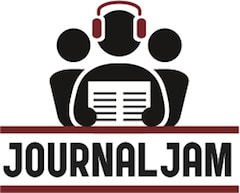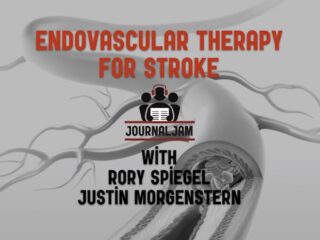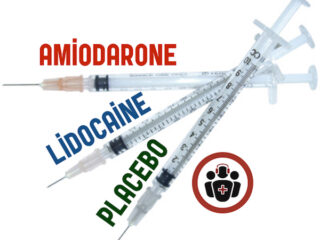
Journal Jam is the EM Cases podcast that brings together leading EM researchers, EM educators and EM clinicians from around the world to discuss practice-changing EM articles or does deep dives into the world’s literature on a particular topic; with Anton Helman, Justin Morgenstern and special guests like Rory Spiegel, Ken Milne, Lauren Westafer, Andrew Morris, and more .
Together, we’re smarter!
Journal Jam 11 Post Contrast Acute Kidney Injury – PCAKI
Lauren Westafer joins Justin Morgenstern, Rory Spiegel and Anton Helman in a deep dive discussion on the world's literature on Post Contrast Acute Kidney Injury (PCAKI) in this Journal Jam podcast. Hospitals continue to insist on time consuming, and potentially dangerous protocols for administration of fluids to patients with renal dysfunction prior to CT IV contrast despite the lack of evidence that Contrast Induced Nephropathy (CIN) even exists. Would you choose a different imaging modality if your radiologist suggested that a patient with renal dysfunction who required a CT with IV contrast should forgo the contrast risking a missed diagnosis?
Journal Jam 10 Part 2 Endovascular Therapy for Stroke
In this part 2 of EM Cases Journal Jam podcast on Thrombolysis and Endovascular Therapy for Stroke Justin Morgenstern, Rory Spiegel and Anton Helman do a deep dive into the world's literature on endovascular therapy for stroke. While the evidence for endovascular therapy is stronger than that for IV systemic thrombolysis for stroke outcomes at 90 days, a closer look at the literature reveals that a very small minority of patients are eligible for endovascular therapy and we still don't know which patients benefit most from endovascular therapy...
Journal Jam 10 Thrombolysis & Endovascular Therapy for Stroke Part 1
In this two part EM Cases Journal Jam podcast Justin Morgenstern, Rory Spiegel and Anton Helman do a deep dive into the world's literature on systemic thrombolysis for ischemic stroke followed by an analysis of endovascular therapy for stroke. We elucidate the important issues related to p-values, ordinal analysis, fragility index, heterogeneity of studies, stopping trials early and conflicts of interest related to this body of evidence. While "calling a code stroke" is now considered standard for most stroke patients and tPA for stroke is considered a class 1A drug, a close look at the literature tells us that the evidence is not as strong as our stroke protocols suggest...
Journal Jam 9 – D-dimer to Rule Out Aortic Dissection
The EM Cases Team is very excited to bring you not only a new format for the Journal Jam podcast but a new member of the team, Dr. Rory Spiegel, aka @EM_Nerd an Emergency Medicine physician from The University Maryland Medical Center in Baltimore, the founder of the EM Nerd blog and the co-host of the Annals of EM podcast. The new format sees Justin Morgenstern, Teresa Chan, Rory Spiegel and Anton Helman doing deep dives into the world's literature on specific practical questions while highlighting some important evidence-based medicine concepts. The question we ask in this Journal Jam podcast: Is there a role for D-dimer testing in the workup of aortic dissection in the ED?
Journal Jam 8 – Dilute Apple Juice for Pediatric Gastroenteritis
This is EM Cases Journal Jam podcast on a randomized control trial of dilute apple juice vs PediaLyte for mild pediatric gastroenteritis. While IV rehydration is required in cases of severe gastroenteritis (which we rarely see in North America) and oral rehydration with electrolyte maintenance solutions is still the mainstay in treating moderate gastroenteritis, could better-tasting, more cost-effective fluids such as diluted apple juice be just as effective as traditional electrolyte solutions in milder cases? Listen to Dr. Justin Morgenstern (@First10EM) interviewing Dr. Stephen Freedman, the world-renowned pediatric EM researcher who put ondansetron for pediatric gastroenteritis on the map and who was one of our guest experts on our main episode on Pediatric Gastroenteritis, Constipation and Bowel Obstruction, about this practice-changing paper. This is followed by a hilarious rant on the topic from Dr. Anthony Crocco ("Ranthony"), the Division head and medical director of pediatric EM at Hamilton Health Sciences.
Journal Jam 7 – Amiodarone vs Lidocaine vs Placebo in Cardiac Arrest: The ALPS Trial
Journal Jam 7 - Amiodarone vs Lidocaine vs Placebo in Cardiac Arrest: The ALPS Trial. In our most popular EM Cases episode to date - ACLS Guidelines Cardiac Arrest Controversies, we boldly stated, that there has never been an antiarrhythmic medication that has shown any long term survival benefit in cardiac arrest. The use of medications in cardiac arrest has been one of those things that we all do, but that we know the evidence isn’t great for. Yet Amiodarone is still in the newest AHA adult cardiac arrest algorithm for ventricular fibrillation or pulseless ventricular tachycarida – 300mg IV after the 3rd shock with the option to give it again at 150mg after that. Anti-arrhythmics have been shown in previous RCTs to increase the rate of return of spontaneous circulation and even increased survival to hospital admission, however none of them have been able to show a decrease in mortality or a favourable neurological outcome at hospital discharge. In other words, there has never been shown a long term survival or functional benefit - which is a bit disconcerting. But now, we have a recent large randomized, controlled trial that shines some new light on the role of anti-arrythmics in cardiac arrest - The ALPS trial: Amiodarone vs Lidocaine vs placebo in out of hospital cardiac arrest. In this Journal Jam podcast, Justin Morgenstern and Anton Helman interview two authors of the ALPS trial, Dr. Laurie Morrison a world-renowned researcher in cardiac arrest and Dr. Paul Dorian, a cardiac electrophysiologist and one of Canada's leading authorities on arrhythmias about what we should take away from the ALPS trial. It turns out, it's not so simple. We also discuss the value of dual shock therapy for shock resistant ventricular fibrillation and the future of cardiac arrest care.







